As he launches “No Exit”, a dark novelette about suicide and murder, indie author and campaigner Dan Holloway considers the self-published writer's dilemma regarding the conflicting pulls of self-censorship and self-expression, an issue he sums up neatly as “the writer's wants versus readers' needs”.
Freedom. I don’t think anyone who self-publishes would deny that’s the most alluring thing of all about doing things yourself. For many of us it’s a mix of relief, joy, intoxication, in-your-face-up-yoursness that conjures up George Michael and Robbie Williams.
But I started wondering about the flip side to this when I posted a piece about my new book, No Exit, a loosely YA piece of fem noir that puts some uncomfortable questions to contemporary culture – about whether death can be beautiful; about whether murder can be a healing act; about whether we should intervene if a loved one tries to kill themselves.
The question I wrestled with was a simple one – should I write this stuff? Is it ever justified? Indeed, is not writing it ever justified? Can my honest intention excuse the potential effect on readers?
What ensued on the post, but most of all on Faceboook, was a fascinating but surprisingly predictable conversation. I have become used to a general decrying of self-censorship, the clarion call of “I write what I have to write” or “I cut nothing.”
- I have learned that most people who can say this glibly do so because what they “have to say” is so anodyne it would cause very little harm.
- I have learned to keep quiet when people think the unharmful anodyne is actually the sharpest edge of dangerous.
- I have even learned to stop getting irritated at the irrationality, and even to stop rolling my eyes when those I see making such pronouncements are those I also saw sharing petitions for Amazon to ban a certain notorious book a few years ago.
The Self-Publishing Perspective
But I have started thinking. The glib cries seem to fall easiest from the lips of my self-publishing friends, and I wonder if there’s a reason. And whether that reason has to do with the heady passion for freedom self-publishing brings. Has self-expression become a holy grail, a sacred chalice from which self-publishing enables us to drink? Do we reflexively see any talk of self-censorship as the distant decretals of an establishment seeking to wrest the cup from our hands once more (yes, it’s not an accident that I’m using the Protestant Reformation as my guiding metaphor)?
Of course, there are many self-publishers who take the notion of responsibility, especially to their readers, very seriously. We see that in the pleas for professionalism. Ironically, this is one of the aspects of self-publishing of which I am an outspoken critic, but that may just be my natural contrariness.
But it’s rare that we see in-depth pieces asking whether we should use the freedom we have over content without considering the implications:
- Is it really the case that a deleterious text is rendered acceptable by correct formatting and structure?
- Is it that we are, rightly, so frightened of the notion of censorship it cannot even register in our vocabulary?
- Is it that all those writers think such vanilla thoughts the issue never arises and self-expression is allowed to become the easy-to-defend “freedom to stick close to the consensus or to demur on points that breach no libertarian levees”?
Or is it that placing the author at the centre, as the battle cry incites us, does just that?
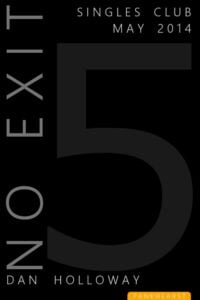
“Two women who have never met are about to commit murder together. What brought them to this point?” No Exit is available from all Amazon stores…
Places the author at the centre. Not just of the business of books, but of the whole literary universe. Is the unreflective call for self-expression simply another avatar of the notion that “author wants” trumps “reader needs”, accompanied by the convenient metastructure that informs us of the ultimately patronising nature of even considering the notion of a reader’s “needs”?
It is probably a mix. But whereas anodyne is a noun that applies to most humans per se, and fear of censorship is a pillar of our hunger for justice – and both therefore apply to traditional and self-publishing alike, I wonder if self-publishing is unique in holding out the sacrosanct promise and expectation of the final cut. And if so, I wonder if this is a good thing. I know that in No Exit there’s not a punch I’ve pulled. But I also know that if I hadn’t asked the question, when the inevitable comments come in I would feel my responses were on shakier ground.
–

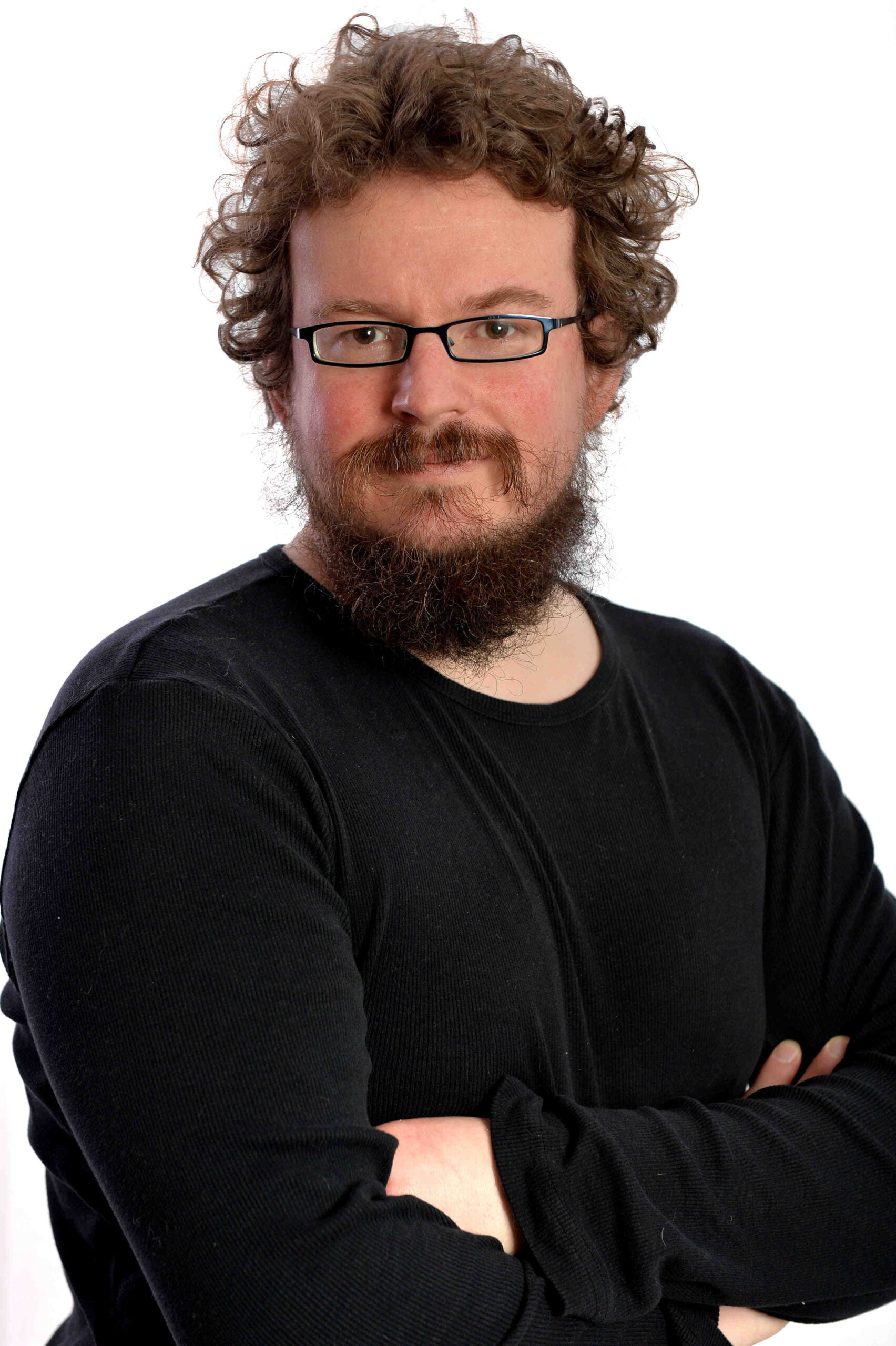

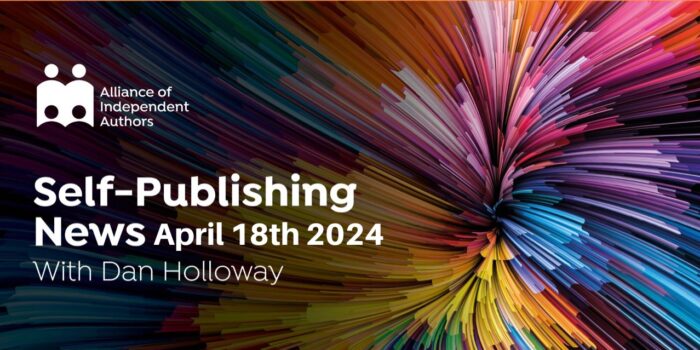
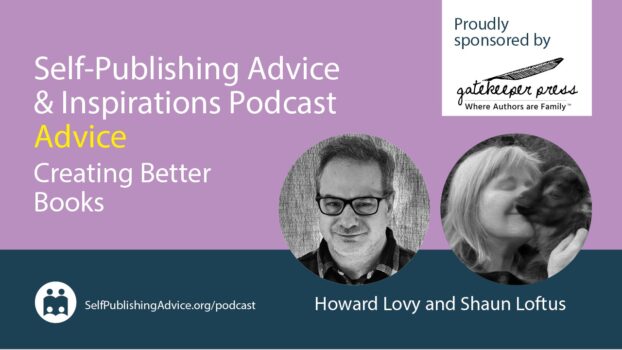
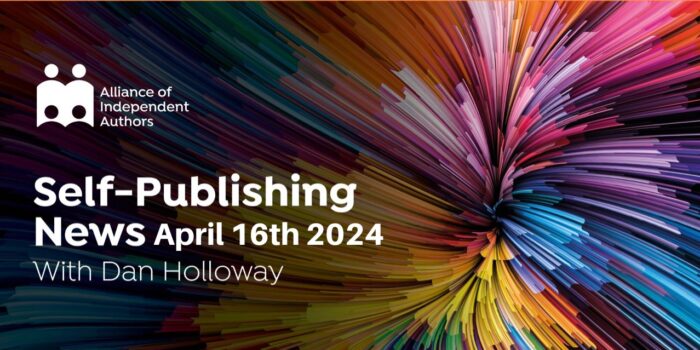
I’m curious if Mr. Holloway is still reachable, on this topic. I would appreciate knowing his stance on the legal repercussions certain censorship issues could tow, how long it takes the powers that be to come to that point and what we can do, as writers, to continue being heard. Are you suggesting to self-publish anyway, and only concern myself with the possible censorship if it comes?
I have several works that I am hesitant to use, only because I am so new at this. But the focus of these storylines seem more and more likely, to me, to be censored in some way.
Dan Holloway: “and yet I am very worried about whether it was a responsible thing to write – I’m equally worried that it would be irresponsible not to write it, which is why I went ahead…”
Well-said! 🙂
Thank you – and great to see you here, Jess
Funny, I thought it was simply called editing. You write for yourself and you edit for your audience. Understanding the story and whether you need something or it is just gratuitous is important. It is actually easy to shock, but if nothing comes after that, then it was simply wasted. And subtly can trump directness most of the time–at least if you think you readers have an imagination. Editing is more than finding typos.
I agree and disagree – there’s a lot of truth in the notion that honest and thorough editing is a real responsibility to the reader. Then again, I’m not sure that shocking is what I’m really talking about – in my own book, there are several quite detailed accounts of suicide that are presented without judgment, and the suicide’s best friend is portrayed positively for not intervening. There is nothing shocking content wise, every single sentence is essential to the story, and yet I am very worried about whether it was a responsible thing to write – I’m equally worried that it would be irresponsible not to write it, which is why I went ahead
It sounds like Dan is not really coming from a “political correctness” camp or even from a Chomskeyesque viewpoint in that if you’re for freedom of speech, you’re for the expression of things even that you hate. Writers have a responsibility, but what that responsibility is seems to shift on terribly shaky ground based on individual taste. Is that wrong? Is that right? From this post, I’m not sure if Dan is really trying to answer that question, he’s more trying to highlight the struggle.
What I got out of this post is that the relationship between indie/self-published author and audience is a very specific, singular beast that can be (should be?) placed wholly outside of the realm of mainstream “professional” literature. Rules can be broken; chances can be taken. Clinging to “professionalism” kind of defeats the purpose. There are a lot of blog posts out there about why self-publishing is the road to go because you don’t have to waste your life playing “Big 5 roulette” but in essence, the line between mainstream books from the Big 5 and self-published mainstream books is completely superficial if all you’re doing is emulating those models.
To me there’s nothing wrong with that really. But I think the point here is that authors should really be honest about what they’re doing and what they’re trying to achieve with their audiences. Self-publishing in many regards isn’t above mainstream publishing models simply because of the non-mainstream factor alone, and it’s dubious when people with “vanilla” ideas maybe make more of what they’re doing with their writing on an artistic level simply because they fall under the moniker of “indie.” But again, who’s to say? What’s vanilla to you and me is the blackest of Black Forest Cake to someone else. I think we must forgive others for not having our curse of knowledge sometimes, as Dan pointed out.
I don’t think these are easy questions to answer. Artists constantly struggle with them. And if you aren’t struggling with them, are you really an artist? And if you aren’t an artist, is that really so bad?
Amy – yes, the piece was first and foremost trying to highlight the struggle – and if something worries me it’s most of all when writers don’t think there’s a struggle to be had – my inkling is that this is a mindset that’s increased with the rise of sel;f-publishing. First, from a practical point of view – publishers have due diligence departments whose job is to challenge you if what you write could cause problems – be that quoting a song lyric or portraying suicide in a way that breaches voluntary codes of conduct. Second, self-publishing brings us freedom, and that’s a wonderful thing – but that freedom is both intoxicating and something that we as self-publishers very bullishly consider our new birthright and protect at all costs.
I agree 100% with everythingyou say in the last paragraph – perfectly and succinctly put on all counts!
@Matthew, apologies to you and of course to Warren for any grumpiness.
Absolutely I didn’t think you were exonerating the characters – that’s not what this debate’s about – it’s about exonerating (or not) authors for writing those characters. I apologies wholeheartedly if I misrepresented you but I’m very used to the argument that says it’s OK for Nabokov to write Lolita but not the guy who wrote the p*****ile’s handbook being put forward by people who purport to be supporters of unfettered free speech. In my book unfettered free speech should be unfettered free speech. The moment you start to acknowledge there’s a line, it simply becomes a question where to draw it. I honestly don’t know where I would like the line drawn, but sociopolitical me accepts there needs to be one – however much writer me rails against that and insists there mustn’t.
On political correctness etc, I should have expanded – yes, I think I am happy to say good intention never exonerates offence. But the flip side is that I also would never blame someone for causing unintentional offence – but someone’s not being to blame doesn’t mean that we shouldn’t be able to point out they should stop doing it
Again – apologies for grumpiness and snark – it’s too important an issue to resort to such tactics
Good on you, Dan. I agree with you re: the hypocrisy of those who selectively cry “foul.”
I understand you’re in the middle of moving. That’s got to be the worst possible time to engage in a nice meaty discussion on the web. You’re a brave man..?
Good luck!
I also just got seconded to my ex boss’ job without giving up my previous one so I’m working two jobs as well – the head’s a little on the full side – writing is what’s keeping me sane (if not awake) 🙂
@Mary – that’s another post entirely 🙂 I am a very noisy critic of valuing professionalism over other aspects of writing. I think it’s something we do too much as self-publishers – we want to be like traditionally published writers. For me that takes away what’s most exciting about self-publishing, which is what it does differently. I also think there are too many “good” books and we shouldn’t seek to add to that number – at least not for readers’ sake – readers deserve things that will blow their minds, and that’s what we should be celebrating in the writing world.
@Claire – I’m not sure about writing as healing – I love confessional writing such as Sharon Olds’ work. I don’t think that’s really what’s dangerous – though of course that depends on the nature of the healing. Again, I think this is another juicy post!
@Matthew – “Essentially, these two characters behaved in a way that is utterly consistent both with their character (the moral variety), their situation, and their very well-established world” – for me that’e exactly the problem I’m talking about – why do you feel the need to explain that the context makes it OK? That’s sort of what I mean by vanilla – concern for appropriateness. Surely if authors are as unconcerned as you hold they should be, then appropriateness is absolutely irrelevant – all that matters is what is going through the author’s mind, *whatever* that is.
I also have a real problem with the notion that offence is down to the offended – to me that’s just wrong. Or, rather, it does not exonerate the offender. We have, thankfully, reached a stage whereby the debates around race, LGBT rights, gender and the like have accepted that intention never exonerates offence – it would be nice to see that widened out
@Warren – really? “Correctness is a dumbing down process”? Really? Wow. Being aware that actions have consequences is the first step towards treating the marginalised with dignity in my book – and that’s about the most “undumbing-up” step you can take in my book
Dan, let’s be very clear: I did not write that the context made the characters’ actions OK. I wrote that their behavior was consistent with their (ethical) character and their environment.
There’s a BIG difference between what I wrote and writing “the context makes it OK.”
The characters in my example behave reprehensibly all the time, and if the story in question follows the rules of Western fiction, they will probably get what’s “coming to them” in due time.
I wish I didn’t need to explain that the context within which a character acts is important in fiction.
Unfortunately, people sometimes view the abominable actions of characters in a story as if the author approved of those actions.
Of course, in the majority of stories, that’s simply not the case. If it were, we would have to believe that most authors are adulterers, killers, thieves, and worse, wouldn’t we? Few ALLi members would escape the stockade.
What’s appropriate to the story at hand is what they should be concerned with. Serve the story, as I wrote.
Dan, I once wrote a story where a madman tears the eyes from the dead babies he’s killed in order to make a necklace which he believes will enable him to see his god. Eventually, the madman pays — quite horribly — for his crimes.
I did not write that story to offend any person who has lost a child, or to offend anyone with mental illness, or to offend anyone who believes in God. Once a story is out in the world, who reads it — and their reaction — is, to a degree, beyond my control.
Indeed, while that horrible character does those horrible things, the things that happen in the story are not what the story is about.
Now, if I wrote that story with the intention of poking sticks at parents who have lost children, people with mental illness, or believers in divine power, well, shame on me. But most fiction is not written in that spirit. Most authors should not be criticized for the actions of the characters in their fiction.
Does that make sense?
The word “never” leaves very little room, Dan. Are you sure you mean never? Be very sure.
Should we persecute and demonize John Lennon and Yoko One for writing, “Woman is the Nigger of the World?”
Should we (once again) remove “Way in the Middle of the Air” from Ray Bradbury’s “The Martian Chronicles, as it was by Doubleday in 2001 and Harper Collins in 2006?
Never means never, after all.
As a person existing with other people on the planet, I do my best to treat others with respect.
The characters I create in the context of a story may or may not share my ethics.
If a reader of my fiction confuses my characters with me, that’s on them. How can the writer possibly be held responsible for the reaction of every person who might read their work?
As for Warren’s comment: I think I understand what he’s saying (but I stand ready to be corrected!) The fear of offending — of being misunderstood, and, at the root, of being shunned by the tribe — can be so strong that reasonable discussion is sometimes stifled.
Try explaining to some people that “Baby It’s Cold Outside” is not a song about date rape, for example, and watch the pitchforks come out.
Being aware that actions have consequences has nothing to do with criticizing censorship (whether that censorship is of the self, codified in law, or the result of peer pressure). With all applicable, respect, Dan, “correctness,” (if Warren means “political correctness”) has little to do with whether or not one understands that actions have consequences.
Warren might even feel offended by that. Was that your intention..? Or shall we exonerate you? 😉
Hi Dan: Fear of censorship? Fear of offending readers? If I had to consider these effects I would rather not write. I believe in Freedom to write on whatever theme that a writer feels they must. Content is born in the mind of the writer who creates the individual story world, the characters that dwell therein and the tangled plots and events. Banning books is a slippery-slope. Who has the right to judge and decide what an author will write, or readers should choose? Free choice is the deciding factor. Correctness is a dumbing down process. A panoramic vision is the future.
I wish you Success.
Warren.
Most authors eventually wrestle with, or are at least confronted by, the issue of self-censorship. Whether your own work has you thinking about it, or you’re dealing with pressure or push-back from your readers, it’s a sign you’re doing something right.
I first encountered this in 2008. Don’t want to click away to read that? Here’s the bottom line:
Authors dare not worry about offending the reader. Authors have one core responsibility: tell a story that helps us all understand a little bit about what it means to be human.
Since we’re territorial, hierarchical, sexually dimorphic, omnivorous primates, what it means to be human includes a lot of horrible stuff. And a lot of beautiful stuff.
Remember that offense is, except in the case of deliberate antagonism, something taken, not given. It’s a feeling one experiences (with fear at its root). If people don’t want to face their fears and explore — even subconsciously — why it is they are afraid, they can read something safer for them.
But it’s not our jobs to fret about it.
The basic issue of the author’s responsibility to the reader flashed across certain circles of the Web a few weeks ago, when an episode of a certain very popular subscription-only, adult-audiences television drama featured a scene that many interpreted as the rape of a woman by a man.
Some folks raged that rape is not entertainment. They’re right. They also miss the point.
The two characters involved have been established as murderous, deceitful, perverse, and self-involved to the point of sociopathy, and that’s putting it kindly.
These two characters live in a world where it has been repeatedly established that human life is nearly valueless, and that women are a commodity at best and chattel at worst.
Oh yeah… they had this sex next to the corpse of their son. And they’re brother and sister.
Essentially, these two characters behaved in a way that is utterly consistent both with their character (the moral variety), their situation, and their very well-established world. If people are bothered by that, they had three years’ worth of episodes to figure out that they should be watching something else.
The author’s responsibility is to serve the story. End of story.
My personal position on this has nothing to do with being a self-published author. It’s not arrived at, or communicated, glibly. It’s central to my identity as a creator.
Every creator has to make a choice about this. Personally, I think culture benefits when creators are unafraid.
While probably writing very differently to Dan, I do want to open up the minds of readers to difficult questions. without giving easy answers. Hopefully it’s also done in a way that readers can still feel the story is the main thing! Being indie means not having to follow trends, which is very freeing.
As to writing being a ‘healing process’, (referring to what Mary says above), surely any writing which is done for healing (of its author) belongs in the ‘journaling’ category, not what one presents to readers? Or am I hopelessly out of date (and trend?)
A good and much needed thought— the idea that writers write for their readers — but it is larger than self-censorship of uncomfortable or controversial topics and ideas. IMHO, too many authors — often memoirists, but others as well— see writing as a “healing tool” with not nearly enough thought about what will make the subject of interest to the reader or what readers they are aiming to reach.
But I am curious … if I read it correctly, you are an “outspoken critic” of professionalism among authors. If so, why?